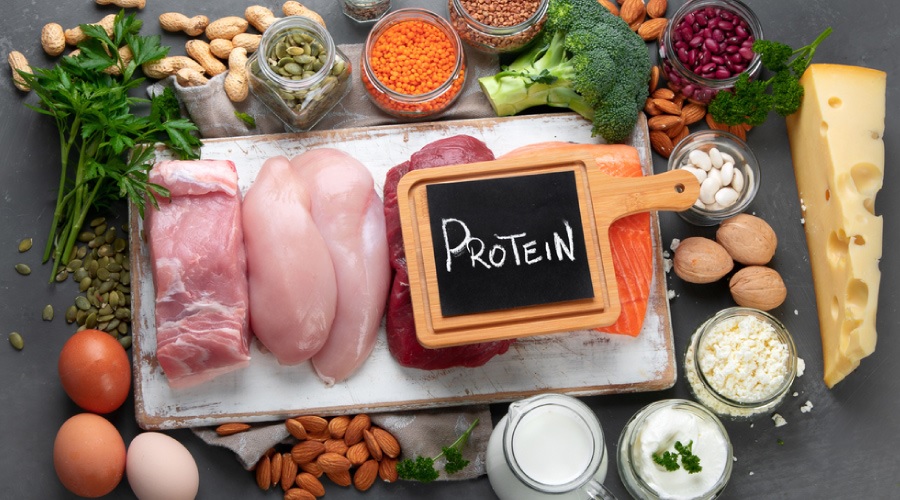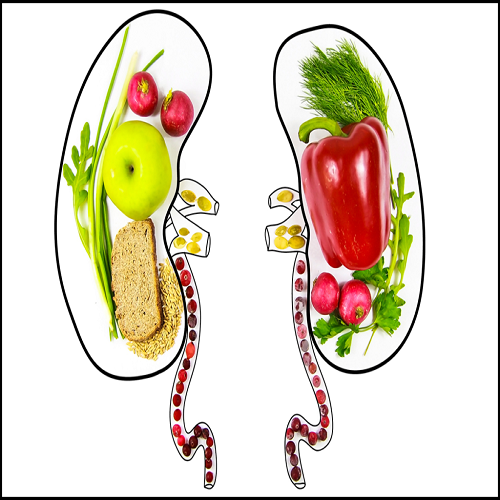Best High-Protein Foods, According to a Dietitian


Best High-Protein Foods: Protein is a complex organic molecule that plays a critical role in the structure and function of living organisms. Proteins are made up of long chains of amino acids that are linked together through peptide bonds to form polypeptides. These polypeptide chains can be hundreds or even thousands of amino acids long, and they fold into specific 3D shapes to carry out their biological functions.
Proteins have many different functions in the body, including:
- Structural support: Some proteins, such as collagen, act as building blocks for tissues like skin, bone, and muscle.
- Enzymatic activity: Many proteins act as enzymes, which are molecules that catalyze chemical reactions in the body. For example, digestive enzymes in the stomach break down food molecules into smaller components that can be absorbed by the body.
- Transport: Some proteins, such as hemoglobin, are responsible for transporting molecules like oxygen throughout the body.
- Immune response: Antibodies are specialized proteins that help the body identify and neutralize foreign invaders like viruses and bacteria.
- Hormone production: Hormones are chemical messengers that are produced by specialized cells in the body. Many hormones, like insulin, are actually proteins.
- Energy storage: Some proteins, like casein in milk, act as a source of energy for the body.
Proteins are essential to life, and they are found in all living organisms, from bacteria to plants to animals. Humans require a diet that includes adequate amounts of protein in order to maintain health and vitality. Good sources of protein include meat, fish, poultry, eggs, dairy products, beans, and nuts
How Much Protein Do You Need?
Protein is an essential nutrient that plays a crucial role in building and repairing tissues in our body, including muscles, bones, skin, and organs. It also helps to maintain the function of our immune system and hormone production. But how much protein do we need? The amount of protein required varies depending on several factors such as age, gender, weight, physical activity level, and health goals.
The Recommended Daily Allowance (RDA) for protein intake is 0.8 grams per kilogram of body weight. For example, if you weigh 68 kg (150 pounds), you would need 55 grams of protein per day. This amount is adequate to meet the basic needs of most people, including sedentary individuals. However, if you are physically active or an athlete, you may require more protein to support muscle recovery and growth.
A general guideline for active individuals is to consume 1.2-1.7 grams of protein per kilogram of body weight. For example, if you weigh 68 kg (150 pounds) and exercise regularly, you would need 82-116 grams of protein per day. Endurance athletes may require more protein than strength athletes because they need to support their higher energy demands.
If you are looking to gain muscle mass
If you are looking to gain muscle mass, you may require even more protein. Studies have shown that consuming 1.6-2.2 grams of protein per kilogram of body weight per day may be beneficial for maximizing muscle protein synthesis. However, consuming too much protein can also be detrimental to your health, especially if you have kidney problems. It’s essential to speak with a registered dietitian or a healthcare professional to determine the right amount of protein you need for your individual needs.
It’s also important to note that not all sources of protein are created equal. Animal sources such as meat, poultry, fish, eggs, and dairy products contain high-quality protein with all essential amino acids. Plant sources such as beans, legumes, nuts, and seeds also provide protein, but they may lack one or more essential amino acids. Consuming a variety of protein sources can help you meet your protein needs and ensure that you get all the necessary amino acids.
In conclusion, the amount of protein you need depends on several factors such as age, gender, weight, physical activity level, and health goals.
According to a Dietitian Best High-Protein Foods
As a dietitian, I can suggest the following high-protein foods that are not only delicious but also packed with nutrients to help you meet your daily protein needs:
1. Eggs
A whole egg provides about 6 grams of protein, along with other essential nutrients like choline and vitamin D.
2. Chicken breast
One skinless, boneless chicken breast contains about 31 grams of protein, making it an excellent source of protein.
3. Greek Yogurt
Greek yogurt is high in protein, with around 17 grams of protein per 6-ounce serving. It’s also a good source of calcium, which is important for bone health.
4. Lentils
Lentils are a great vegetarian source of protein, with about 18 grams of protein per cup. They are also high in fiber, which can help promote feelings of fullness and aid in digestion.
5. Tuna
Tuna is a lean source of protein, with about 20 grams of protein per 3-ounce serving. It’s also a good source of omega-3 fatty acids, which can help lower inflammation and support heart health.
6. Quinoa
Quinoa is a gluten-free grain that’s high in protein, with about 8 grams of protein per cup. It’s also a good source of fiber and essential minerals like iron and magnesium.
7. Cottage cheese
Cottage cheese is a high-protein dairy product, with around 25 grams of protein per cup. It’s also a good source of calcium and other essential nutrients.
8. Almonds
Almonds are a great plant-based source of protein, with about 6 grams of protein per 1-ounce serving. They’re also high in healthy fats and fiber, which can help keep you full.
9. Milk
Milk is a good source of protein, with about 8 grams of protein per cup. It’s also a good source of calcium and other essential vitamins and minerals.
10. Beef
Beef is a rich source of protein, with about 22 grams of protein per 3-ounce serving. It’s also high in iron, which is important for oxygen transport in the body.
It’s important to remember that while protein is an essential nutrient, it’s also important to balance your diet with a variety of other foods to meet your overall nutritional needs.



